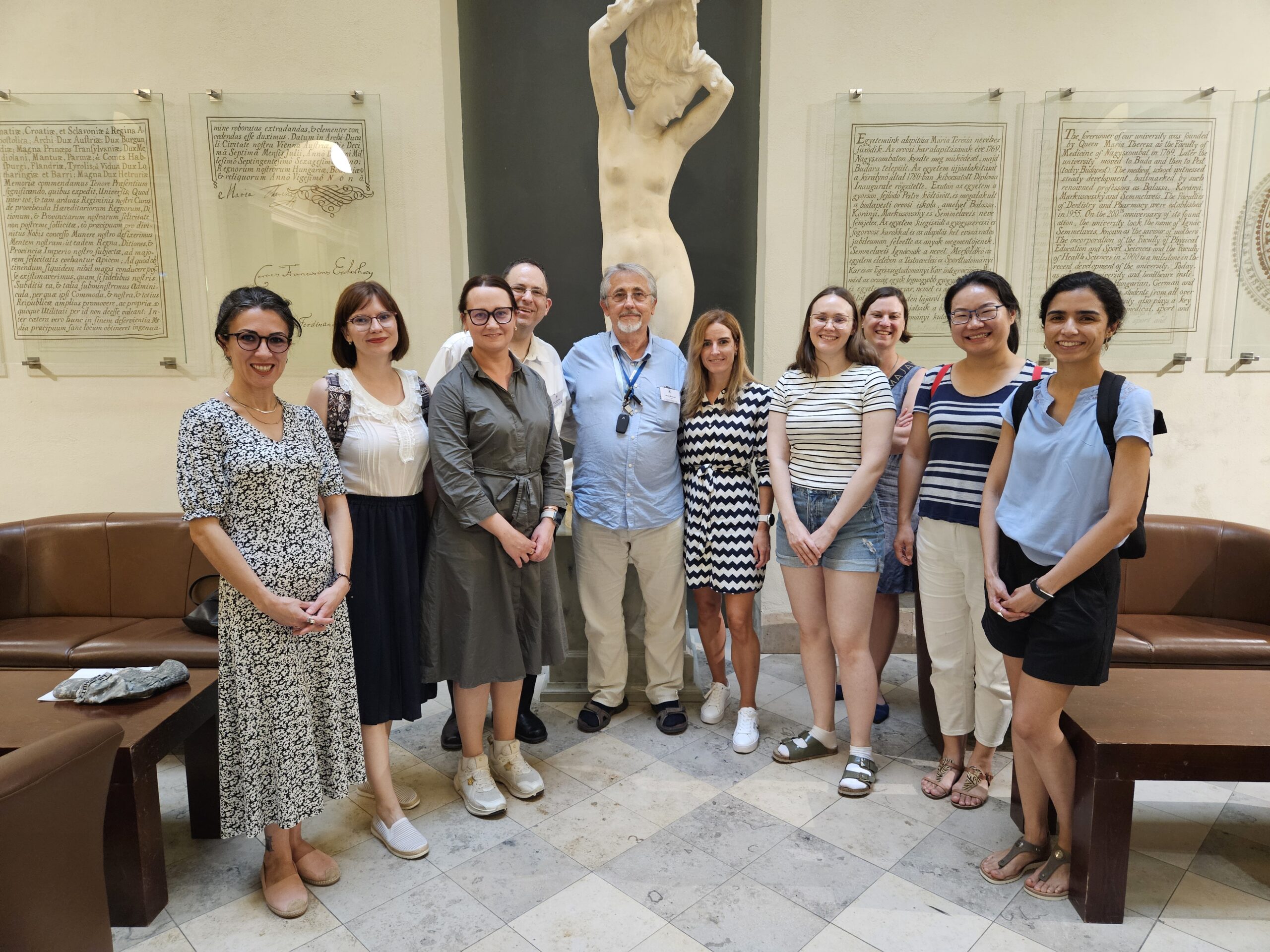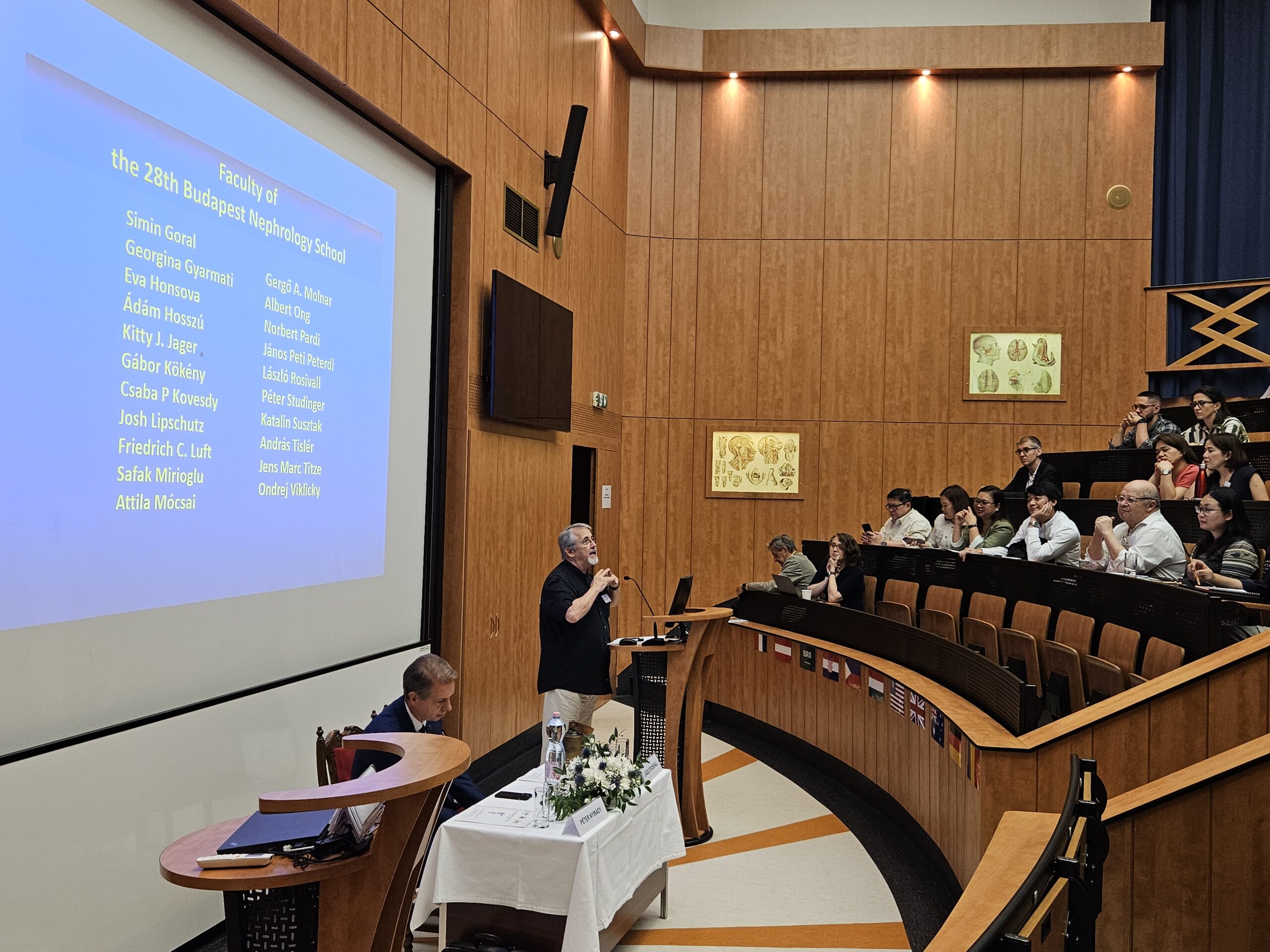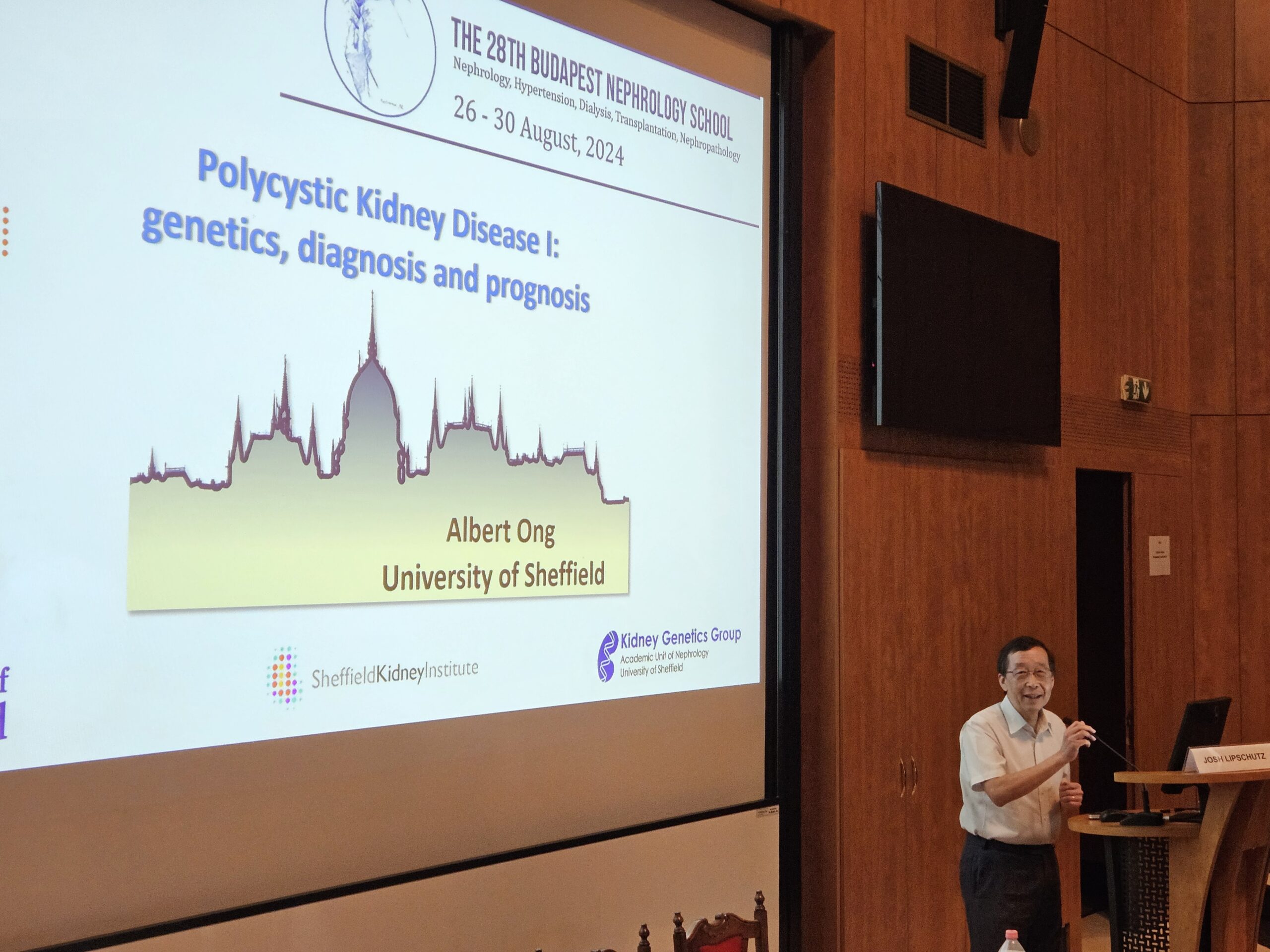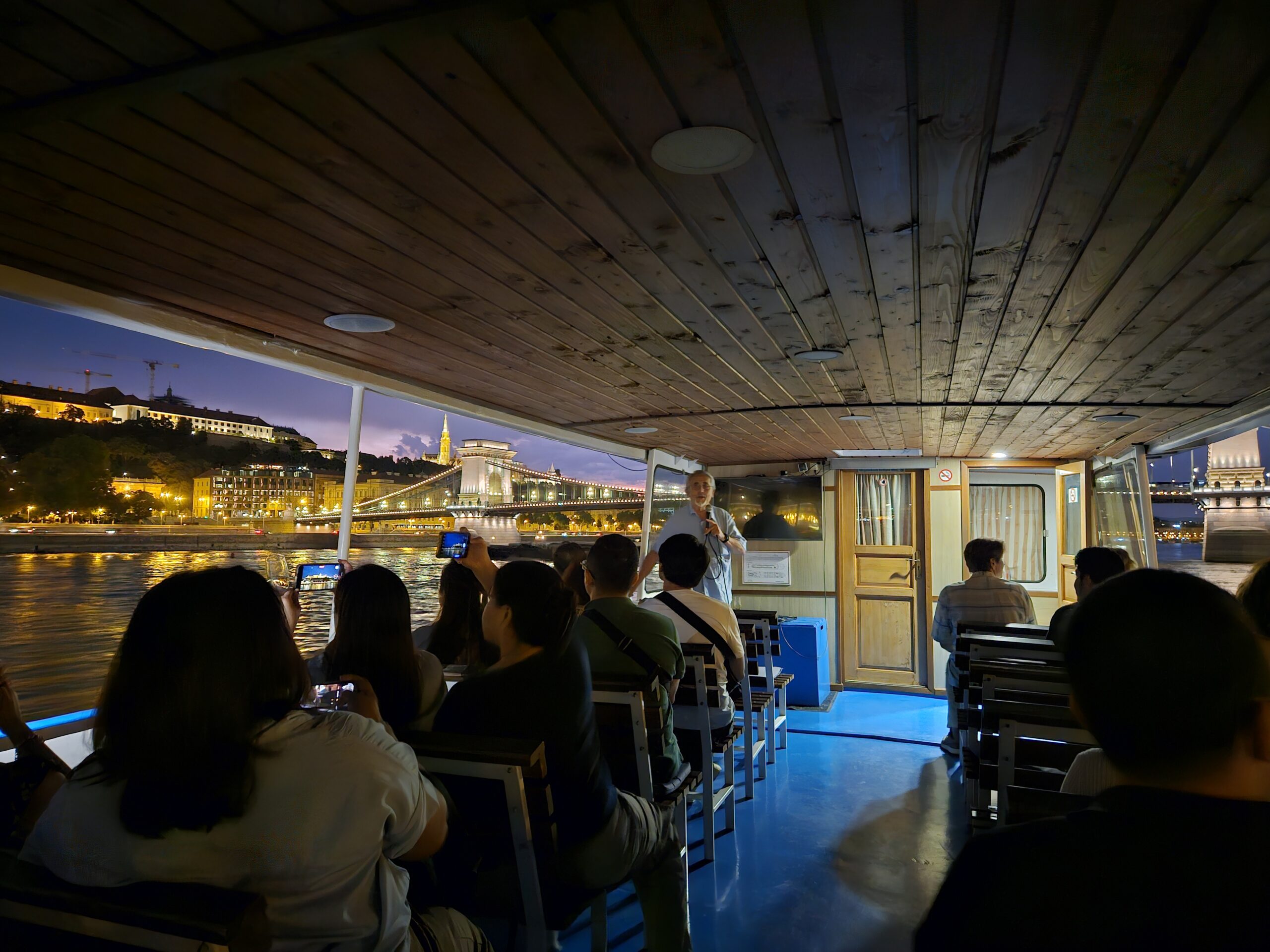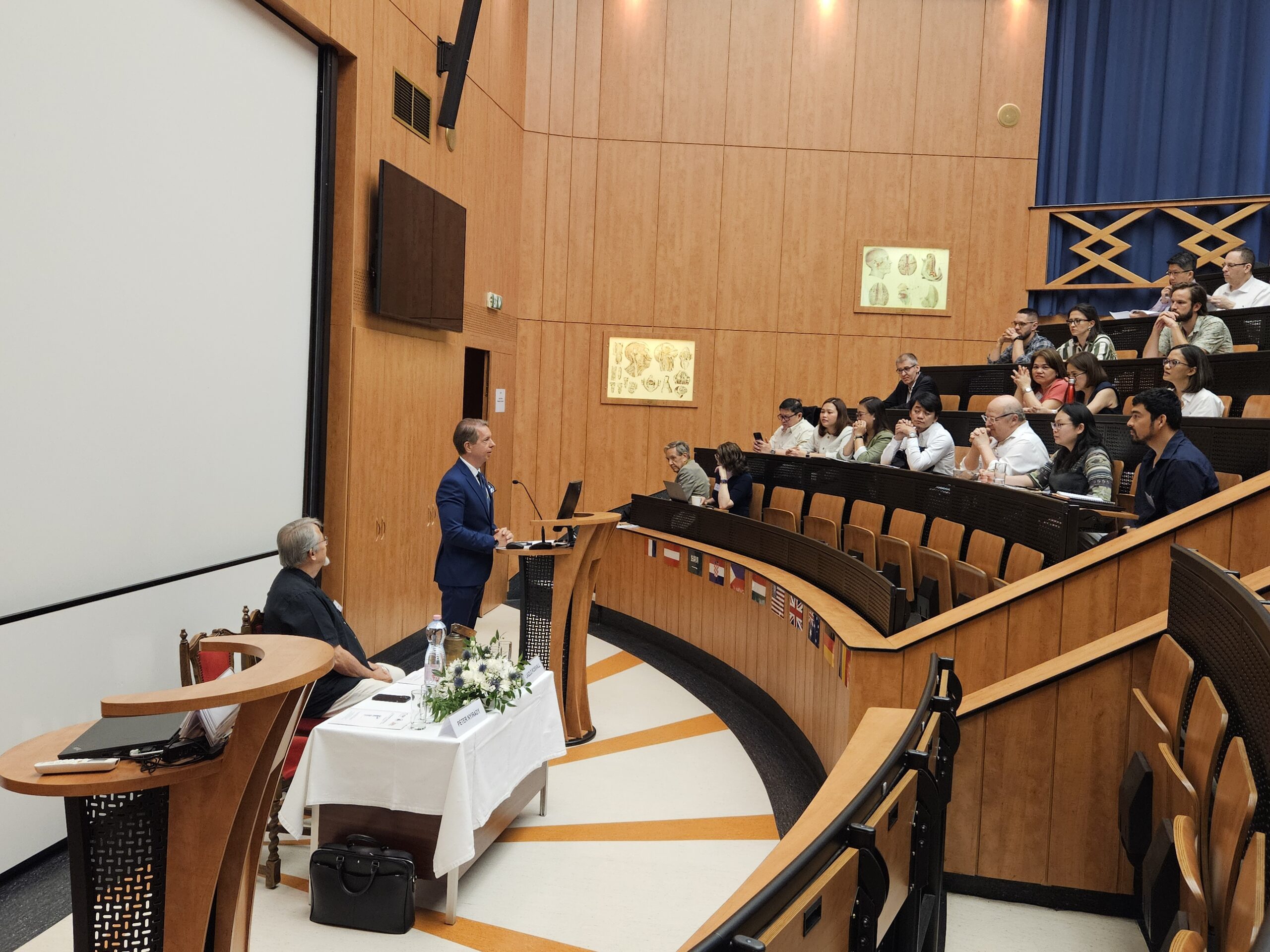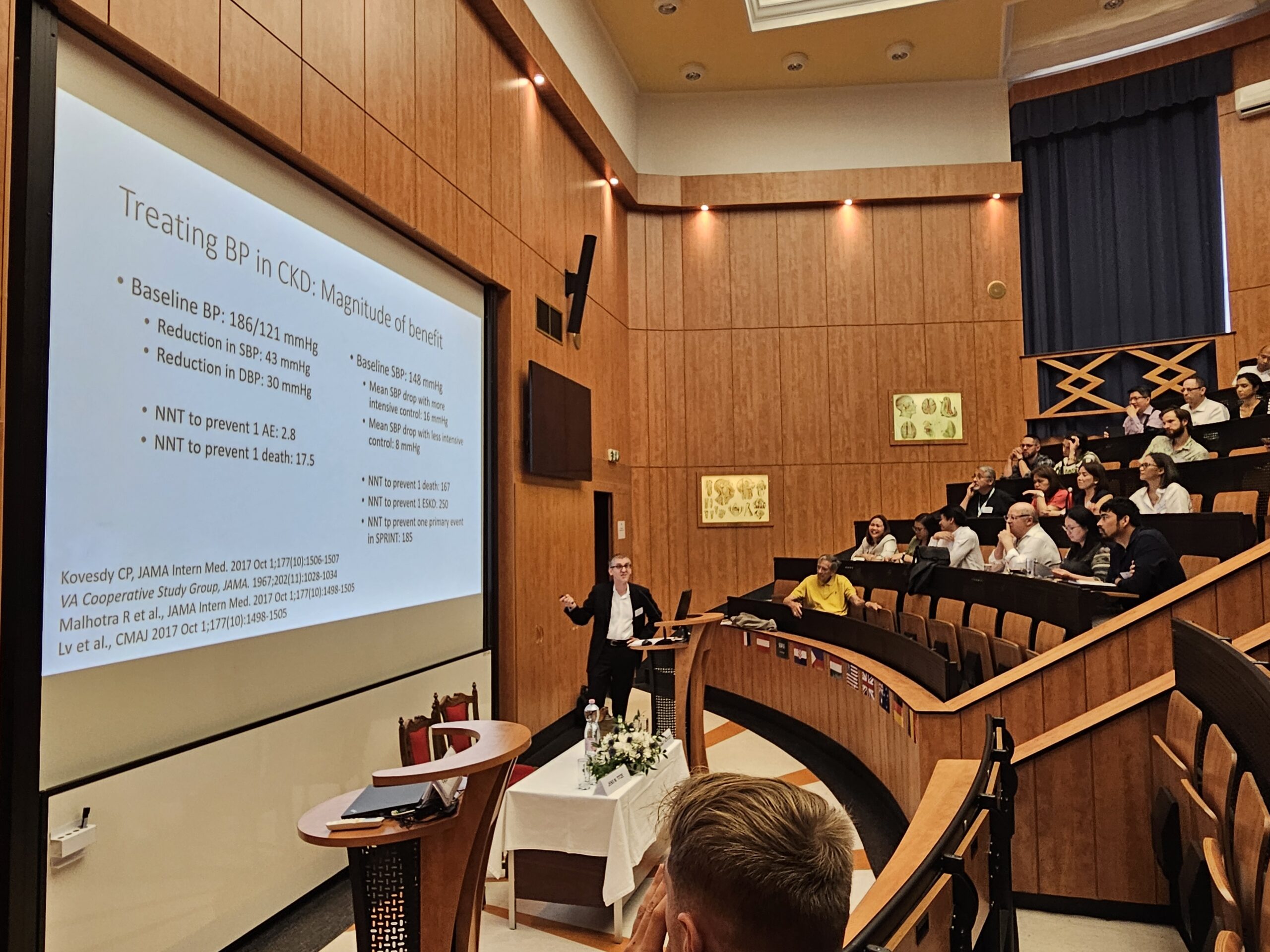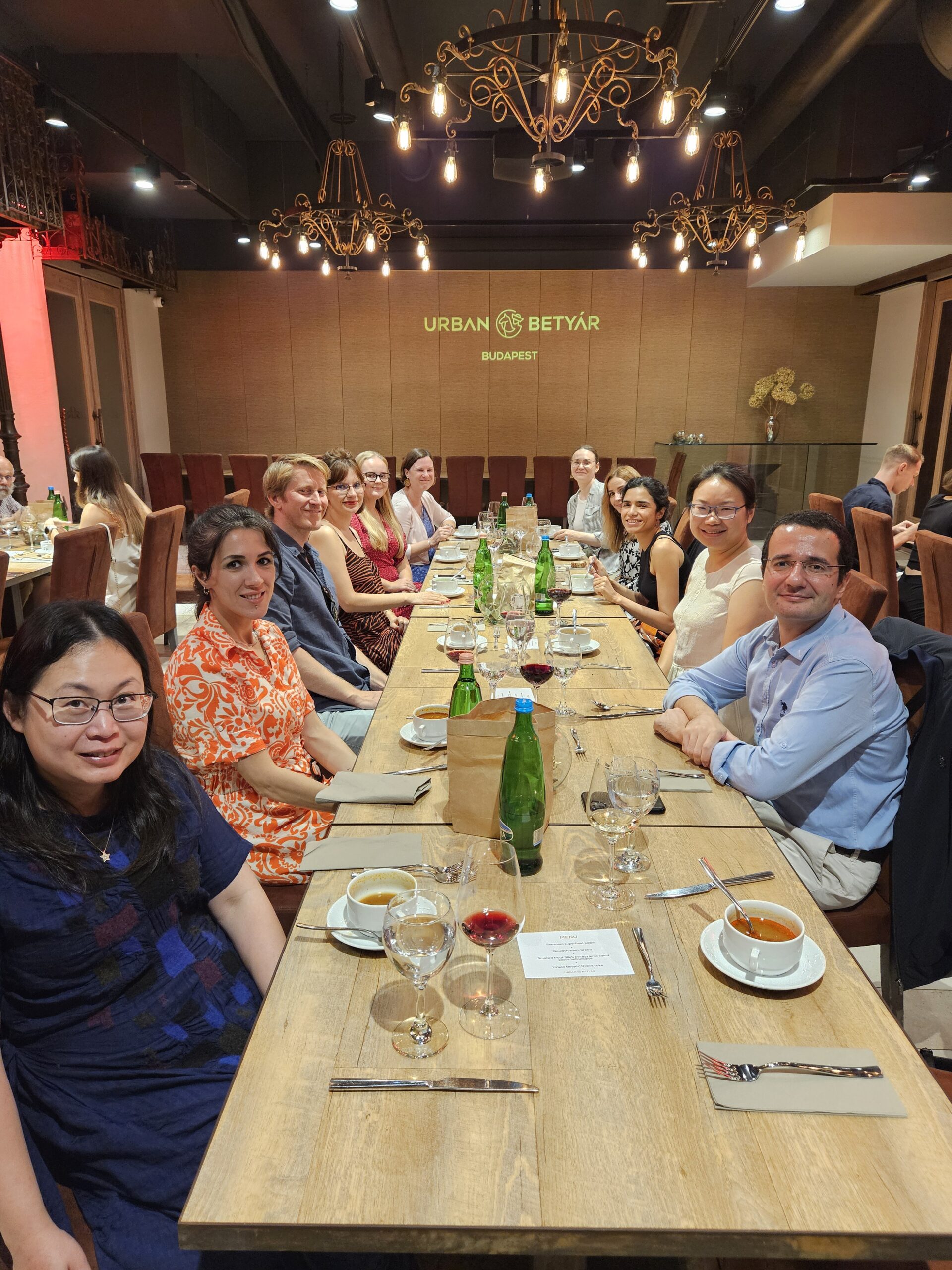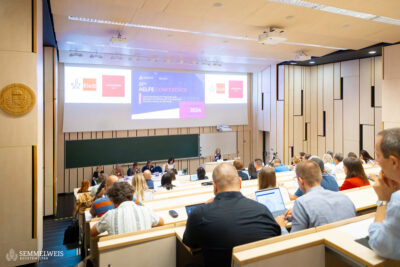The course initiator and developer, Dr. László Rosivall, Professor Emeritus of the Institute of Translational Medicine, has been organizing the Budapest Nephrology School since 1993, which has become one of the most renowned and highest-quality nephrology courses in the world. The event returned last year after a three-year COVID hiatus.
The Hungarian Society of Nephrology, the European Renal Association (ERA), and the International Society of Nephrology (ISN) all consider the program a flagship course. Participants arrived from several European countries, including Croatia, Bosnia and Herzegovina, France, the United Kingdom, Romania, and Lithuania, as well as from other continents, such as the Philippines, Indonesia, and Australia. In keeping with tradition, the participation was free of charge and open to PhD students at Semmelweis University and aspiring nephrologists.
Attendance and test-writing at the course have been granted 25.0 European CME credits by the European Accreditation Council for Continuing Medical Education (EACCME), while Hungarian colleagues were eligible for 50 continuing education credits as a course registered by OFTEX, the Hungarian medical doctor training system.
The scientific program featured world-renowned speakers from Hungary and abroad, who presented many exciting new and unpublished findings, covering topics ranging from molecules to the bedside. This year’s presentations included the regulation of salt and water balance and its relation to metabolism, renal regeneration, the recognition and importance of renal neuroepithelial cells, diabetic nephropathy, the genetic background of hypertension and chronic kidney disease, the kidney-brain axis, autosomal dominant polycystic kidney disease, AB0-incompatible kidney transplantation, and renal amyloidosis.
Cultural events such as a wine dinner, a wine competition, a Danube cruise, a tour of Semmelweis University’s historical building, and a guided tour of the Hungarian Parliament also enriched the program.
The organizers shared the long-standing conviction within the international nephrology community that anyone who wanted to become a truly recognized leader in the field should present at the Budapest Nephrology School. There was also a widespread perception amongst the audience that anyone wishing to become a well-trained nephrologist should come to Budapest in late August; in Indonesia, next year’s delegates have already been selected. As the Philippine delegation expressed in their letter of thanks, “This is one of the best, if not the best, programs a foreign nephrologist should attend.”
For the second year in a row, several colleagues from the university assisted Dr. László Rosivall in organizing the event, including Dr. Orsolya Cseprekál (Department of Surgery, Transplantation and Gastroenterology), Dr. Orsolya Horváth and Dr. Eszter Lévai (Pediatric Center, Bókay Street Department), Dr. Nóra Ledó (Department of Internal Medicine and Oncology), and Dr. Edina Lám (St. Margaret Hospital, Budapest).
Faculty of the 28th Budapest Nephrology School: Simin Goral (University of Pennsylvania, USA); Georgina Gyarmati (University of Southern California, USA); Eva Honsova (Unilabs Pathology and Charles University, the Czech Republic); Ádám Hosszú (Semmelweis University); Kitty J. Jager (University of Amsterdam, the Netherlands); Kökény Gábor (Semmelweis University); Csaba P Kovesdy (University of Tennessee, USA); Josh Lipschutz (Medical University of South Carolina, USA); Friedrich C. Luft (Charité University, Germany); Safak Mirioglu (Istambul University, Türkiye); Mócsai Attila (Semmelweis University); Molnár A. Gergő (University of Pécs, Medical School); Albert Ong (University of Sheffield, UK); Norbert Pardi (University of Pennsylvania, USA); János Peti Peterdi (University of Southern California, USA); László Rosivall (Semmelweis University); Péter Studinger (Semmelweis University); Katalin Suszták (University of Pennsylvania, USA); András Tislér (Semmelweis University); Jens Marc Titze (Duke-National University, Singapore); and Ondrej Viklicky (Institute for Clinical and Experimental Medicine, the Czech Republic).
Text and photos by the Department of Internal Medicine and Oncology
Translation: Judit Szabados-Dőtsch
